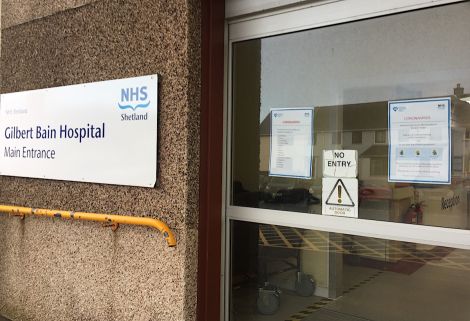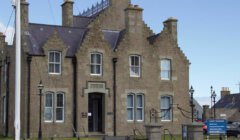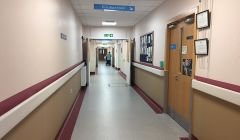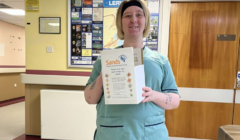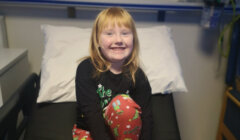Coronavirus / Hospital visiting and A&E arrangements tightened
NHS Shetland is urging people only to attend A&E in hospital if they have a medical emergency or a child who requires assessment.
For all other urgent care needs, contact NHS24 on 111. The move has been made to prevent A&E overcrowding and long waits to be seen.
Visiting restrictions at the Gilbert Bain Hospital have also tightened further amid a new spike in coronavirus cases in Shetland.
Essential visits are only allowed, and they must be agreed with the nurse/midwife in charge of the department before arrival at the hospital.
The following visits are deemed essential:
A birth partner during childbirthA person receiving end of life care
To support someone with a mental health issue, dementia, a learning disability or autism where having a carer not present would cause the patient to be distressed
To accompany a child to hospital for an appointment or admission
Director of nursing and acute services Kathleen Carolan said: “Unless it is essential that you visit a relative in hospital we would ask that you do not visit the ward and instead phone or video chat.
“In order to protect vulnerable patients in hospital, visitors will only be permitted if they can confirm that they have not left Shetland in the last 10 days and all members of their household have also remained in Shetland in the last 10 days.
“We will relax these measures again when it is safe to do so.”
Hand washing facilities are based at the reception main entrance and at stations outside all clinical areas.
All visitors must wear a face mask provided by the hospital and we ask that visitors wash their hands before and after a visit.
The following general restriction applies for all visitors:
- Do not visit anyone in hospital if you have a fever/respiratory/cough or cold symptoms and loss of taste/smell.
- Do not visit if you have had any sickness or diarrhoea within the last 48 hours
- All visitors must hand sanitise when entering and leaving clinical areas.
For visits to A&E, an emergency is a critical or life threatening situation and examples include:
- Loss of consciousness
- An acute confused state
- Fits that are not stopping
- Chest pain
- Breathing difficulties
- Severe bleeding that cannot be stopped
- Severe allergic reactions, or severe burns or scalds
Become a member of Shetland News
Shetland News is asking its readers to consider paying for membership to get additional perks:
- Removal of third-party ads;
- Bookmark posts to read later;
- Exclusive curated weekly newsletter;
- Hide membership messages;
- Comments open for discussion.
If you appreciate what we do and feel strongly about impartial local journalism, then please become a member of Shetland News by either making a single payment, or setting up a monthly, quarterly or yearly subscription.






